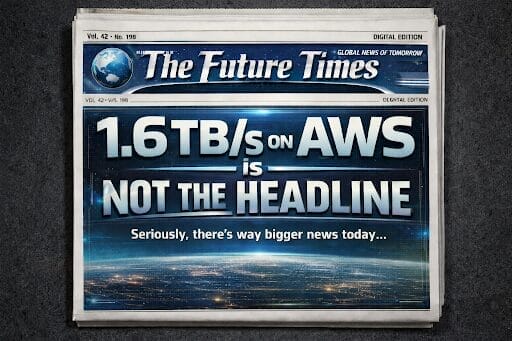This article is a follow on to Qumulo’s Core Architecture is Built with Flexibility In Mind, part 1, where I explained how we designed a system that is hardware agnostic by abstracting away the hardware. But that doesn’t mean we don’t have an in-house hardware team. In part 2 below, I’ll explain how their role fits into our mission of hardware independence to support our customers’ need for hardware flexibility.
A glimpse into the hardware team of a software company
Unlike everything in the software stack, hardware is a black box – the front door interface is the only thing that a user can observe. In some ways, this is a good thing. In software, testing can often present a challenge due to our knowledge of the implementation. In our quest for micro tests, we can sometimes lose sight of the “big picture” functionality.
In other ways, hardware being a black box can be a bad thing. We can’t fix every bug that we identify. We sometimes have to rely on vendors to patch things while we work around the observed behavior in software.
We still apply the Qumulo test ethic to hardware, but it often ends up looking different. Across our two data center labs, we host multiple nodes of every SKU we’ve ever sold. This includes small variations within a single SKU, such as two versions of a NIC, or two different SSDs. We run automated testing continuously against all of this hardware. Failures arising from this testing become sustaining work for the hardware team:
- “What happened to X version of Y NIC such that it’s now hitting twice as many TCP retransmits as it was last week?”
- “Why is VGA output black on node Z?”
- ”What does this Linux kernel traceback in these syslogs mean?
These are the kinds of sustaining challenges software engineers like myself tackle in the hardware space.
Outside of this work, the hardware team spends most of their time reviewing new technology roadmaps, assessing maturity, and building new platforms with partners. This enables us to adopt the latest industry standard technologies to continuously deliver better value for customers. Since Qumulo’s software runs on a variety of hardware, we are free to pick and choose components without worrying about whether or not they will work. If the hardware exists, Linux already supports it.
Delivering NVMe performance in record time
Qumulo was the first to launch an all-flash product with NVMe drives. To facilitate this, we had to do a little bit of lab work to retrofit our qualification machines to power fault test drives connected via NVMe. That done, we followed up by running a few enterprise-class NVMe drives through our battery of tests. After a few days of this, we knew with confidence that NVMe would work fine. We then worked with multiple vendors to configure a server to meet the performance and price per terabyte that our customers had been asking for. After a few months of software work to optimize our backend for all-NVMe nodes, we had a whole new platform!
More recently, we became the first to offer a Hybrid NVMe system, making the performance of NVMe available on a budget. Qumulo’s flash-first file data platform has also been certified on the HPE ProLiant DL325 Gen 10 Plus server family to deliver an extremely cost effective, high-performance solution.
Our hardware-independent mission
Qumulo’s core architecture relies on hardware only as long as the hardware can provide a specific set of guarantees. These guarantees, along with our robust, software-based data protection, are what keep our customers’ data safe.
We lean on Linux to provide us fast and reliable access to any hardware we want. Aside from vendor integration and sustaining work, we spend our time on the hardware team discovering and bringing to market whatever we believe will delight our customers, and then handing it off to be certified and sold.
Qumulo is a software shop that builds with hardware flexibility in mind. Our file system runs on data center hardware and natively on public cloud infrastructure, scaling linearly with the data. In the next article, I’ll dig deeper into the technical side of what we expect from hardware to assure a quality, scalable experience for our customers.
Qumulo is hiring! If you’re interested in joining us take a look at our openings in software engineering and product management–and apply.
Learn more
- Qumulo’s Core Architecture Is Built with Flexibility In Mind, part 1
- Why Go All-Flash When You Can Go All-NVMe?
- All-NVMe Flash Storage for AI and ML File Workloads from HPE and Qumulo
- When a Hardware Company Identifies as Software Independent
Contact us
Take a test drive. Demo Qumulo in our new, interactive hands-on labs or request a free trial.
Subscribe to the Qumulo blog for customer stories, technical insights, and product news.


